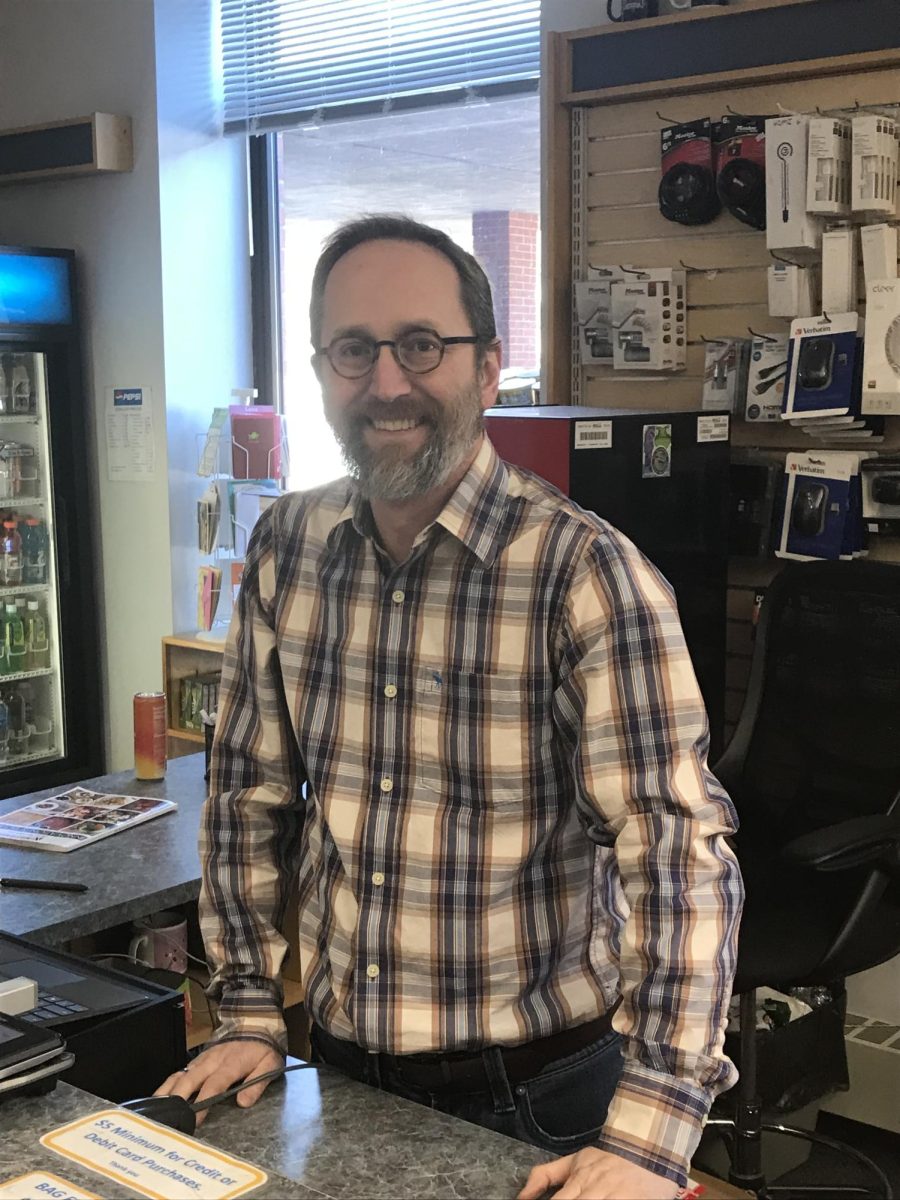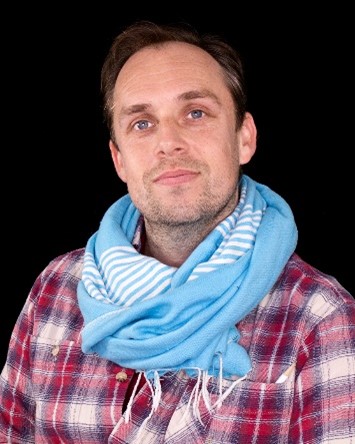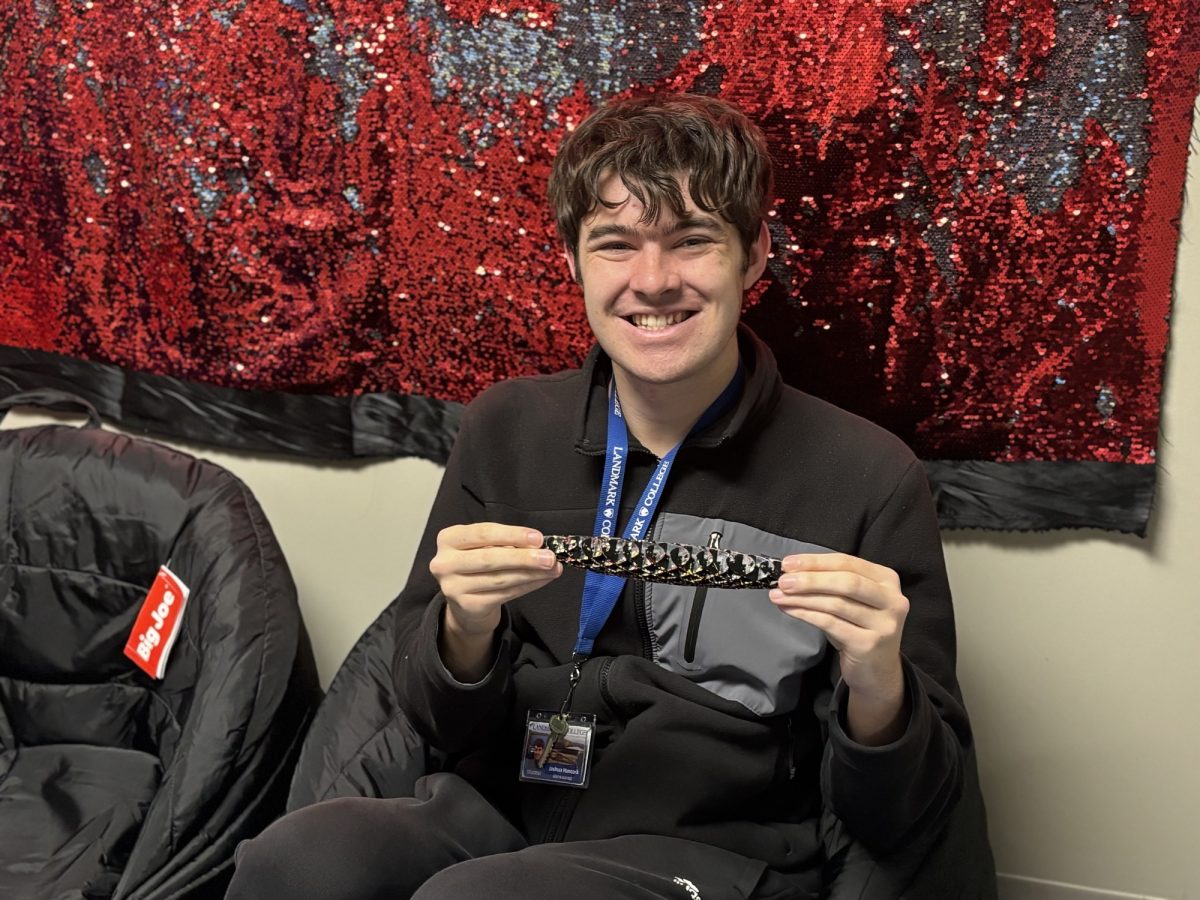
As Head Chef and Guide, Dennis oversees the kitchen of the Putney School, a private boarding academy located on a 500 acre farm in Putney, Vermont. Within the busy walls of this campus, Dennis’s presence goes far beyond the sound of pots and pans; he too is an instructor. Alongside each meal he skillfully prepares, he dishes a side of life lessons, instilling confidence in his team and comforting students with a feeling of familiarity. His kitchen serves not only as a beacon of nourishment, but as a classroom; diners discuss the bittersweet and difficult times in life, they laugh, reflect, and dish—they also develop personally, handling daily chores such as dishes and other aspects of mealtime cleanup. By exploring how he skillfully combines vibrant flavors from his tenured career with strong notes of guidance, support, and community, this leadership snapshot seeks to dive deeper into the zest of Dennis’s leadership and create a menu that includes a heaping portion of true leadership.
Dennis’s Road to Success
Like the soak of a pork shoulder in a cassoulet, Dennis’s leadership and career journey has been slow and steady. Starting first as a waiter in New York City at 18, he paid his dues in the front of house of various hotels and restaurants up and down the East Coast for over 20 years, first cooking professionally at 38. His time as a waiter proved indispensable, as Dennis had already mastered many managerial aspects required for a culinary career when the time came to don an apron.
For Dennis, an ideal kitchen environment is one where “everything is in its proper place”. Organization and cleanliness are two key pillars of Dennis’s kitchens. Though the cuisine and service is top notch, mealtime is not just a one-sided affair; despite Putney’s hefty tuition, there are no butlers at this shool. Chores like dishes and composting are handled by Putney’s very own students daily, facets of the school’s philosophy focused on personal development (this philosophy is one feature that proves to be very attractive to the parents of Putney students).
In chapter five of Introduction to Leadership, author Peter G. Northouse discusses management best-practices, writing that “A leader must also pay attention to recruiting and retaining employees. In addition, leaders need to communicate effectively with their own board of directors, as well as with any external constituencies such as the public, stockholders, or other outside groups that have a stake in the organization”(Northouse pg 101-105). Examining a business and Putney School side by side, we see many parallel stakeholders, such as a board of directors, middle management, employees, and students, who also double as customers in this example. With many different mouths needing to be fed (both literally and figuratively), voices heard, human capital managed, and KPIs met, it is safe to say that Dennis’s workload requires a blend of “art and science.” Dennis’s style focuses on productivity, extensive training of his kitchen staff, motivational reinforcement, and character development, a blend that would earn applause from Northouse.
Northouse’s view on the degree of involvement necessary for strong leadership is one that Dennis definitely shares. According to Northouse, “Laissez-faire leadership hinders success and productivity” (Northouse 68). Dennis believes that the Laissez-faire approach leads to absolute disaster in the kitchen, so he maintains direct oversight day in and day out to run his ship. His consistent presence and leadership by example (taking time out of his day to mentor the newest member of his team and creating a menu suggestion inbox, for example) ensures that his kitchen staff and patrons/clean-up crew are always hardworking, tactical, and comfortable enough to share opinions. In other words, Dennis is a fixture of the Putney kitchen, with toes dipped in pools all throughout the dining facility.
A Word From Dennis’s Team
I also had the pleasure of sitting down with Cindy, Dennis’s Assistant Chef and right hand, who reiterated the role of the kitchen in the Putney School’s methodology, along with what constitutes true leadership in her eyes. Focused mainly on morning prep, Cindy’s own leadership and support buttress Dennis, who is responsible for the entirety of the kitchen.“I’m a firm believer in working as a team and everyone helping each other out”, Cindy offered. Not afraid to lend a hand and speak up when in need of one, Cindy’s leadership style can be described as heavily collaborative. “Working together in the kitchen, we listen to each other’s suggestions.” Cindy explained with pride. It is clear from her words and actions that she values the concept of community well-being. Cindy believes that leadership is more than just giving orders; it is about ensuring that everyone in the community feels welcomed, valued and included. This mindset, one of strategic and situational empathy is another principle that Northouse echos. Considering her personal thoughts on leadership, it’s no surprise that she’s found her groove in Dennis’s team, working back to back with him for the past years with no plans to leave anytime soon.
How Does Dennis Do It All?
Dennis’ leadership style commands productivity, attention to detail, and execution; he and his team are tasked with a tall order; making sure that large quantities of food are served to over 200 students daily. This feat includes mass purchasing, inventory, and prep of staples like meat, bread and vegetables each week. Further, Dennis handles payroll and HR duties for his tight-knit team. Dennis’s slice of the culinary industry is no stranger to the overall labor shortage challenging our nation; even a Michelin star restaurant can be plagued by retention issues such as no-call no shows, and as the leader of the kitchen, Dennis is on the hook to provide extra bandwidth in this case, as his tight-knit team of 5 would suffer noticeably otherwise.
Motivation is something that Dennis constantly strives to stoke in his Putney kitchen to deliver each day. For Dennis, it’s all about getting the team excited and motivated to work towards common goals. Like Cindy, he believes that a good leader should bring people together rather than drive them apart. Northouse would certainly be pleased, as Dennis’ leadership style enables his staff to deliver results. “The goal of the interviews was to identify the qualities of high-performing individuals”(Northouse 130) the author writes in chapter 6.
In my interview with Dennis, we also explored how his kitchen handles conflict resolution. “Conflict is followed by a meeting to remind everyone the correct course of action” Dennis explained, referring to the robust handbook for Putney School staff. Luckily, the extent of conflicts in recent years has proven to be little more than employees swearing around students, though Dennis — eternally leading by example — still dutifully handles each incident with white gloves.
What other leaders have influenced Dennis?
When asked to provide an inspirational leader, Dennis cited Daniel, a friend from his time in New York City, as a major inspiration. Working as an interior designer, Dennis saw first-hand how his friend’s career was jettisoned by his “soft skills.” “Daniel instantly connected with people and planted seeds that grew into long-term relationships, both personal and professional” Dennis gushed to me. Seeing his friend’s successes blossom early on, Dennis has carried this early lesson with him throughout his career, and similar to Daniel’s success, forming bonds with Dennis’s staff has paid dividends for many years.
Above all, what I gathered from my interview with Dennis is that his renewed success (5 years tenure at Putney) is owed mainly to his knack for handling both the intricate and extensive details required to helm the Putney kitchen along with ensuring his staff and school feel like family. His method teaches that when people feel valued and understood, they are more likely to collaborate effectively. In turn, they can accomplish far more as a unit than they could as separate parts. Dennis’s leadership style exemplifies unity and collaboration, demonstrating that great things can happen when everyone pulls in the same direction.





